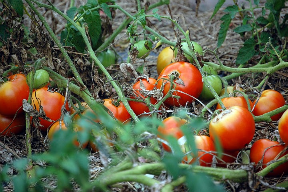It’s been a while since I’ve found some really good initiatives that I thought London, Ontario and Canada at large should be adopting or plain old ripping off. After all, I’ve never seen a government agency claim intellectual property (IP) infringement if someone else began doing the same thing, so why shouldn’t we?! This type of stance has been brought forth by Shawn Adamsson very recently.
Food 2030
The UK government recently unveiled Food 2030 – a food strategy designed to ensure that Britons have access to high quality, sustainably farmed/grown, food that benefits both the farmer/grower and the consumer. At the same time Food 2030 should ensure that people have good jobs, a reduction in greenhouse emissions and food waste.
Not bad for something that only went out for public consultation in August 2009! That’s right – the British government invited citizens and other stakeholders to comments from August till October 2009. It seems Defra took the results of the consultation away, compiled the strategy and released it last week to the masses. The 24 page strategy summary (PDF) goes over what the UK wants by 2030 (informed consumers making good choices, less impact on the environment, a secure food chain, etc), along with how the government proposes they get there. The BBC covered the announcement here.

Overall, there isn’t much to gripe about. I’m sure that some folks won’t like the mention of research and science helping to produce crops that require less water, fertilizer and chemicals but the reality is that high yield crops are a must if we are to food a growing population. Earth will hit 7 billion before we know it and we all have a responsibility to make sure those folks get the nutrition they need.
It would be great to see the Canadian government be so forward thinking. Just one year after massive drought caused food prices to skyrocket (more so than they did here) and caused riots, the UK has taken the initiative to put together a plan that will encourage citizens to take more responsibility for themselves. It’s especially encouraging that 3 major grocery stores only sell free-range eggs now – a move by Loblaws/Real Canadian Superstore or Metro like that would further sustainable food cycle efforts immensely!
Web Communities
Farmers and consumers alike are increasingly turning towards the Internet in order to identify where the nearest source of sustainably grown food can be found. Change.org identified 5 popular websites where people are connecting and I particularly like Local Harvest because it includes Canadian sources. If you’re a Canadian farmer producing organic, sustainable or low impact produce please add yourself to Local Harvest to make it easier for the rest of us to find you! Better yet, if you know of a good Canadian directory please leave me the link in a comment.
Vertical Gardens
There are many examples of people growing vertical/urban gardens. Again, Change.org has linked to several different ways you can setup your own urban/vertical garden, from thrifty to eco-chic. One of the greatest benefits I see from the vertical garden boom happening is a greater amount of plants taking carbon dioxide out of the air, a much cheaper way to grab fresh produce when you need it and also something nice to look at in your home. This is also a good way to use typically unused space in a home or apartment.
I hope that provides you with some food for thought – both literally and figuratively! While it’s becoming easier everyday to get your hands on food that was produced in a sustainable manner, it will still be some time before all the pieces of the puzzle come together. We can all chip in and help out though.
I will also mention that I’m going to be speaking to the folks over at Local Food Plus soon about their organization – how it works, how we can get it to expand beyond its current Toronto-centric focus, where they get their funding, etc. I hope it proves to be a mutually beneficial conversation!
![Reblog this post [with Zemanta]](http://img.zemanta.com/reblog_c.png?x-id=067606df-a6e3-4548-8df9-24fee4368d9d)